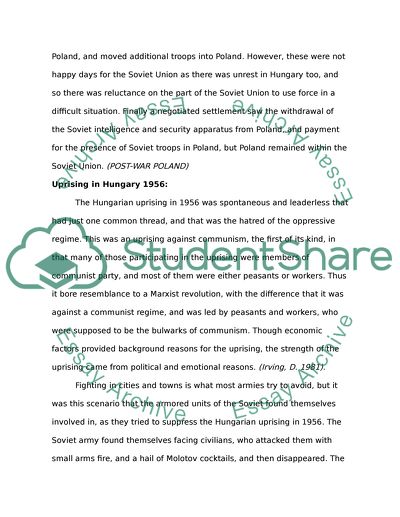Cite this document
(“Uprisings of Soviet Union Satellite Countries Essay”, n.d.)
Uprisings of Soviet Union Satellite Countries Essay. Retrieved from https://studentshare.org/history/1537012-uprisings-of-soviet-union-satellite-countries
Uprisings of Soviet Union Satellite Countries Essay. Retrieved from https://studentshare.org/history/1537012-uprisings-of-soviet-union-satellite-countries
(Uprisings of Soviet Union Satellite Countries Essay)
Uprisings of Soviet Union Satellite Countries Essay. https://studentshare.org/history/1537012-uprisings-of-soviet-union-satellite-countries.
Uprisings of Soviet Union Satellite Countries Essay. https://studentshare.org/history/1537012-uprisings-of-soviet-union-satellite-countries.
“Uprisings of Soviet Union Satellite Countries Essay”, n.d. https://studentshare.org/history/1537012-uprisings-of-soviet-union-satellite-countries.


